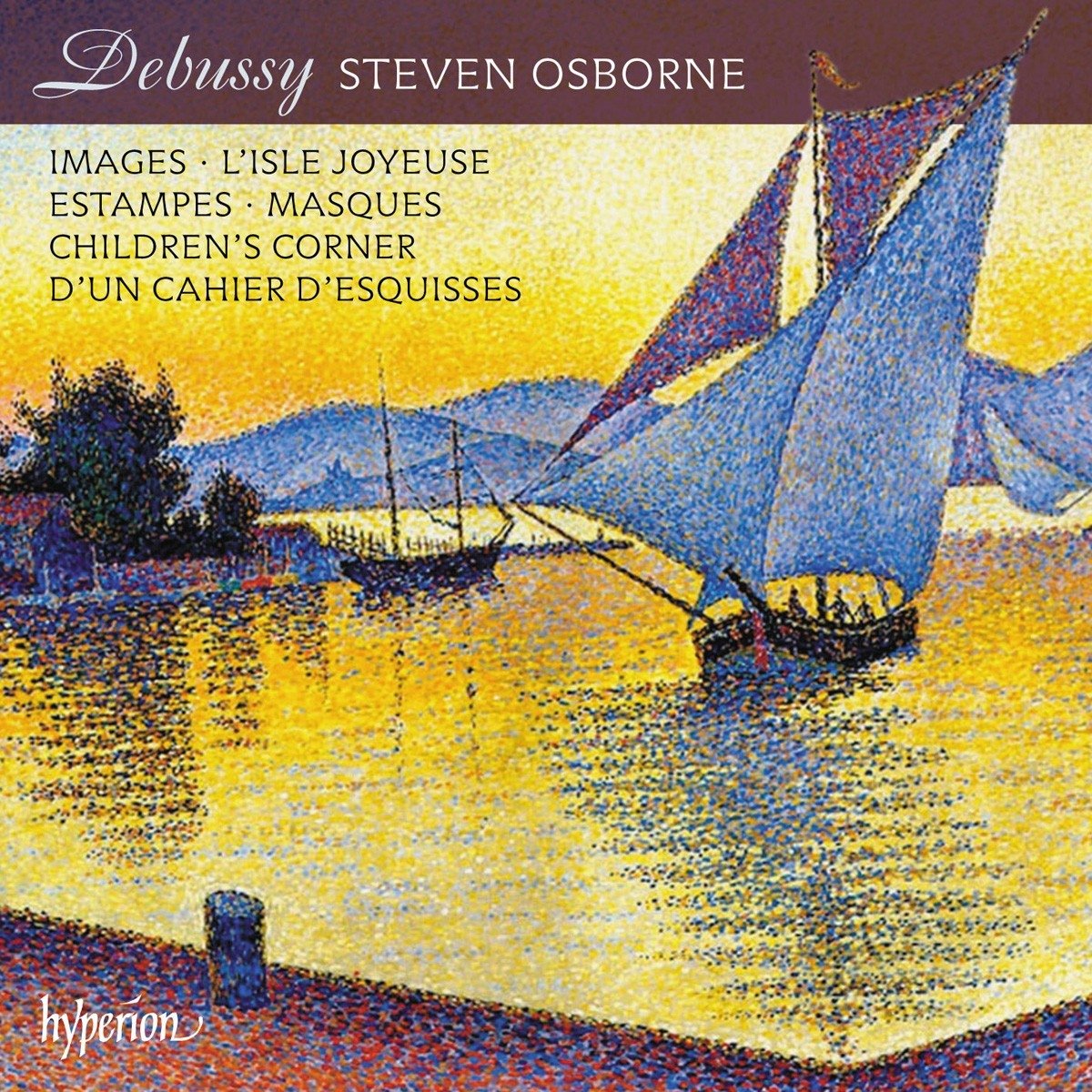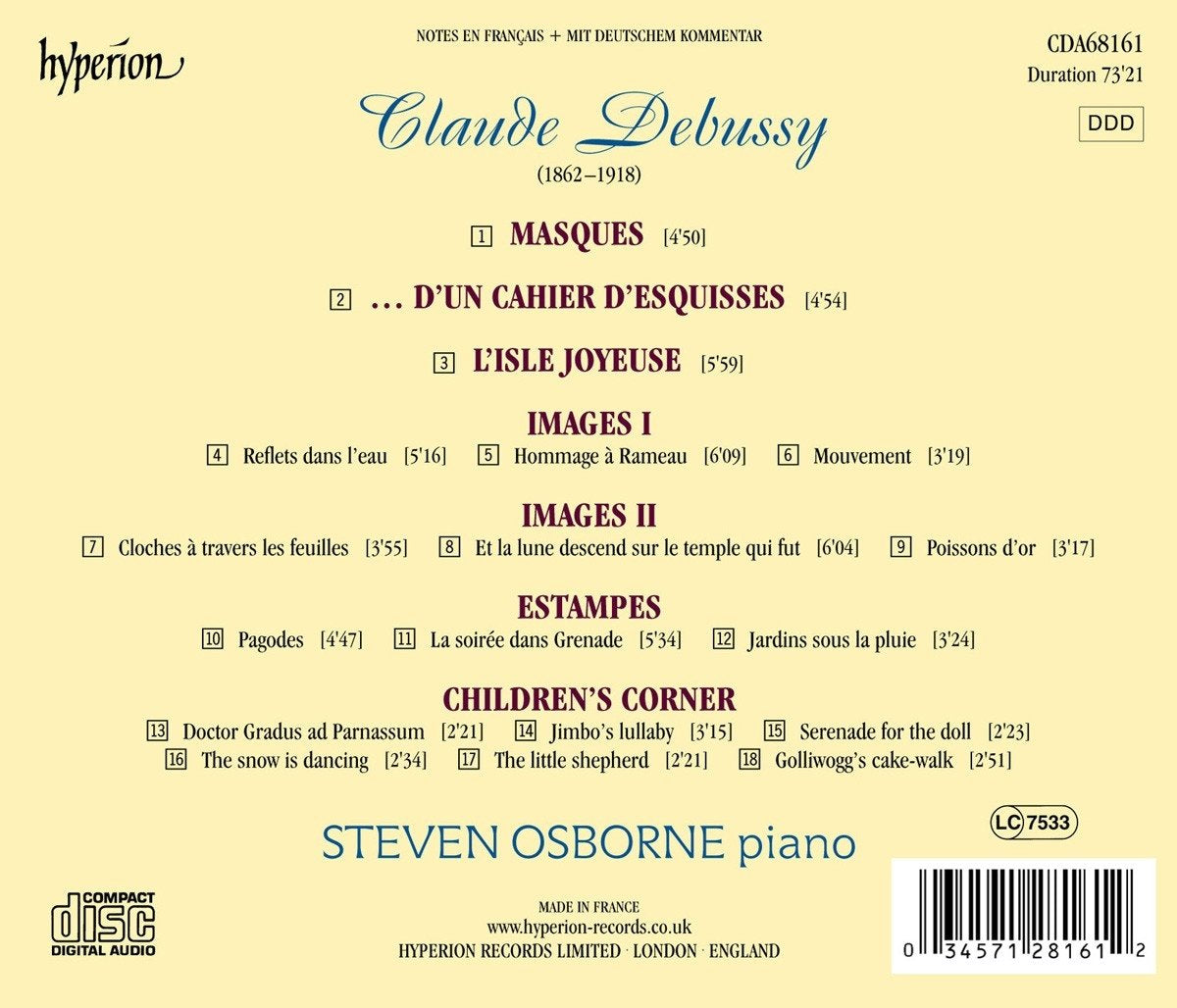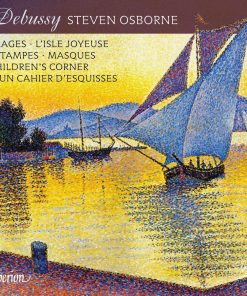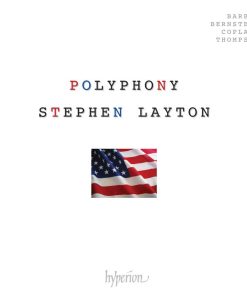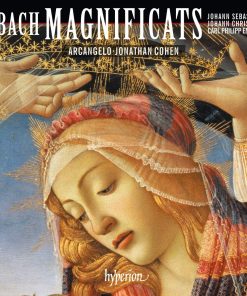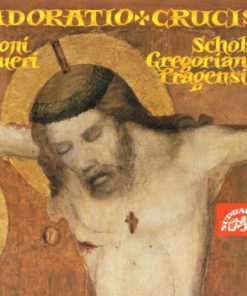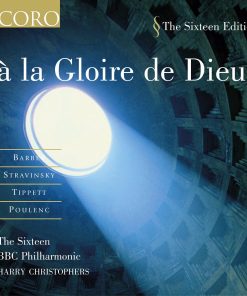Debussy: Piano Music – Steven Osborne Hyperion
$ 12,99 $ 7,79

‘Osborne traverses this well-known repertory with obvious relish, relying on immense musical and technical resources to reveal fresh, unexpected perspectives on music we all thought we knew … this is music-making of great subtlety and finesse which neither lovers of Debussy and French music nor those who value piano-playing on the highest artistic level will want to miss’ (Gramophone)
‘Steven Osborne has produced a recording that at its finest is truly mesmerising’ (BBC Music Magazine)

1
Masques L110[4’50]
2
… D’un cahier d’esquisses L112[4’54]
3
L’isle joyeuse L109[5’59]
Images I L105[14’44]
4
Reflets dans l’eau[5’16]
5
Hommage à Rameau[6’09]
6
Mouvement[3’19]
Images II L120[13’16]
7
Cloches à travers les feuilles[3’55]
8
Et la lune descend sur le temple qui fut[6’04]
9
Poissons d’or[3’17]
Estampes L108[13’45]
10
Pagodes[4’47]
11
La soirée dans Grenade[5’34]
12
Jardins sous la pluie[3’24]
Children’s Corner L119[15’45]
13
Doctor Gradus ad Parnassum[2’21]
14
Jimbo’s lullaby[3’15]
15
Serenade for the doll[2’23]
16
The snow is dancing[2’34]
17
The little shepherd[2’21]
18
Golliwogg’s cake-walk[2’51]

Steven Osborne’s unerring command of the elusive ambiguities of Debussy’s piano-writing has already been amply confirmed by his earlier recording of the two books of Préludes; these lustrous new accounts of the Images, Estampes and Children’s Corner are every bit their equal.
Fast Shipping and Professional Packing
Due to our longstanding partnership with UPS FedEx DHL and other leading international carriers, we are able to provide a range of shipping options. Our warehouse staff are highly trained to pack your goods exactly according to the specifications that we supply. Your goods will undergo a thorough examination and will be safely packaged prior to being sent out. Everyday we deliver hundreds of packages to our customers from all over the world. This is an indication of our dedication to being the largest online retailer worldwide. Warehouses and distribution centers can be located in Europe as well as the USA.
Orders with more than 1 item are assigned processing periods for each item.
Before shipment, all ordered products will be thoroughly inspected. Today, most orders will be shipped within 48 hours. The estimated delivery time is between 3-7 days.
Returns
The stock is constantly changing. It's not entirely managed by us since we are involved with multiple parties such as the factory and our storage. The actual stock can fluctuate at any time. Please understand it may happen that your order will be out of stock when the order is placed.
Our policy is valid for 30 days. If you haven't received your product within 30 days, we're not able to issue either a return or exchange.
You are able to return a product if it is unused and in the same condition when you received it. It must also still remain in the original packaging.
Related products
MUSIC CD
MUSIC CD
